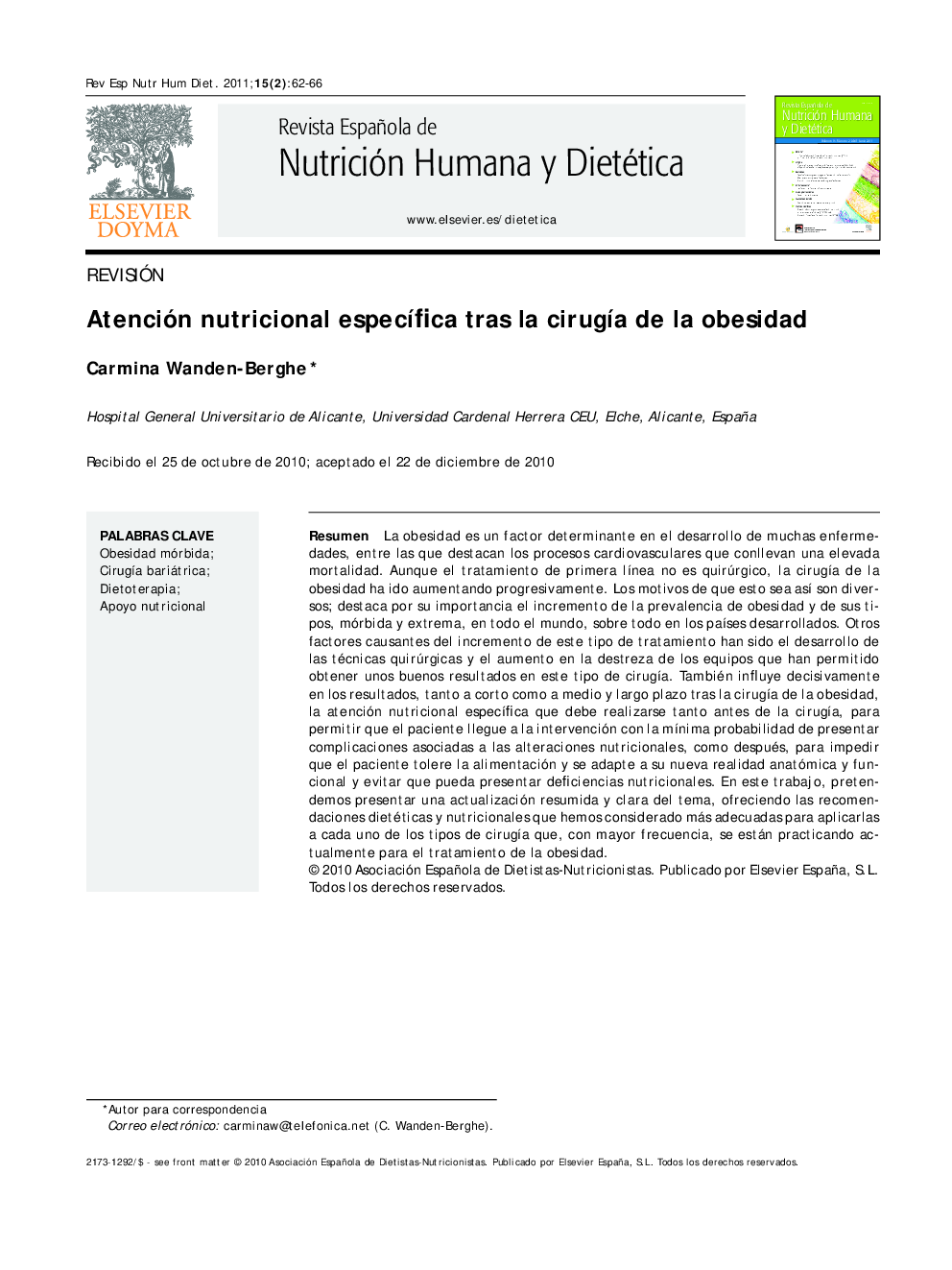| Article ID | Journal | Published Year | Pages | File Type |
|---|---|---|---|---|
| 2689712 | Revista Española de Nutrición Humana y Dietética | 2011 | 5 Pages |
Abstract
Obesity is a major factor in the development of many diseases, including cardiovascular diseases with their associated high mortality. Although the first-line treatment is non-surgical, surgery for obesity has been progressively increasing. The reasons for this are so varied, but is mainly due to the increased worlwide prevalence of extreme and morbid types of obesity, particularly in developed countries. Other factors responsible for the increase in this type of treatment have been the development of surgical techniques and the increasing skills of the teams that have produced good results. Specific nutritional care given both before and after surgery has also had a strong influence on these results, in the short, medium and long term. This enables the patient to have the surgery with the minimum probability of complications associated with nutritional disturbances, and afterwards to prevent the patients tolerating and adapting to food and fit into their new anatomical and functional reality, thus preventing any nutritional deficiencies developing. In this work we present an update and clear summary of the topic, providing dietary and nutritional recommendations that are considered more appropriate to apply to each of the types of surgery most often currently practiced for the treatment of obesity.
Keywords
Related Topics
Health Sciences
Nursing and Health Professions
Nutrition
Authors
Carmina Wanden-Berghe,
